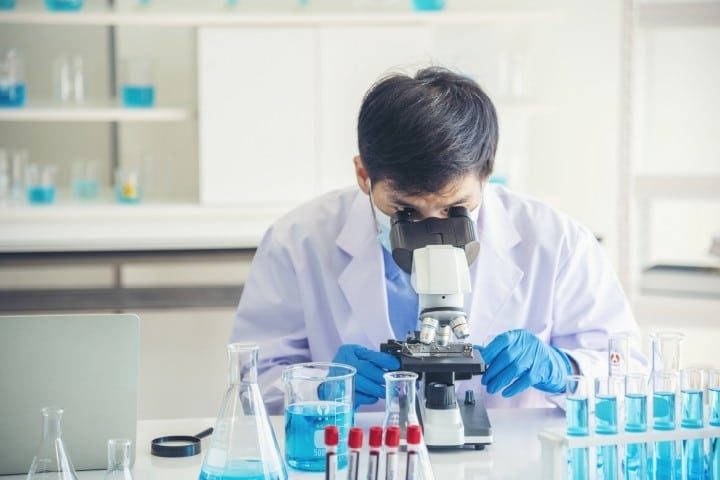
About two weeks ago, microbiologist Richard Ebright wrote that Anthony Fauci and Francis Collins — heads of the National Institute of Allergy and Infectious Diseases and its parent, National Institutes for Health — were “untruthful” in claiming subsidies from the agencies did not fund dangerous gain-of-function research at the Wuhan Institute of Virology.
Some experts believe that research likely created the genetically enhanced coronavirus, SARS-CoV-2, which escaped the Red Chinese lab and caused the global COVID-19 panic.
Now Ebright and 15 other scientists, including lead author Jacques van Helden, a molecular biologist at the Aix-Marseille University in France, have published a letter in the Lancet that goes a little further. Scientific evidence, they wrote, does not support the theory that the virus originated naturally in wildlife. And scientists who claim that the lab-leak hypothesis is a “conspiracy theory” must stop.
Yes, they wrote, the lab leak is “plausible.”
Lancet Exchange
The letter does not finger anyone by name, but it’s directed at the group led by Peter Daszak, whose EcoHealth Alliance funneled subsidies from NIH-NIAID to Wuhan. Those subsidies paid for the gain-of-function experiments.
Fauci has repeatedly and falsely denied that, but anyway, the Daszak group has published two letters in the Lancet to say the lab-leak theory is hooey.
The van Helden letter answers both. It opens with a blast at the previous two. The first one slapped the “conspiracy theory” label on those who said the potentially deadly Asiatic pathogen leaked from the lab in Wuhan.
“We stand together to strongly condemn conspiracy theories suggesting that COVID-19 does not have a natural origin,” the Daszak group wrote in February 2020. That assertion “imparted a silencing effect on the wider scientific debate, including among science journalists,” the van Helden group wrote on September 17.
Daszak and his side wrote again in July this year:
We believe the strongest clue from new, credible, and peer-reviewed evidence in the scientific literature is that the virus evolved in nature, while suggestions of a laboratory leak source of the pandemic remain without scientifically validated evidence that directly supports it in peer-reviewed scientific journals.
That simply isn’t true, the van Helden group averred:
There is no direct support for the natural origin of SARS-CoV-2, and a laboratory-related accident is plausible.
There is so far no scientifically validated evidence that directly supports a natural origin.
The anti-lab-leak claims only show that the SARS-CoV-2 is “related to other betacoronaviruses,” the van Helden group wrote. “The fact that the causative agent of COVID-19 descends from a natural virus is widely accepted, but this does not explain how it came to infect humans.”
After explaining the science in detail, the authors wrote that evidence supports a natural origin for other virus outbreaks. No so with SARS-CoV-2:
Direct evidence for a natural origin for SARS-CoV-2 is missing. After 19 months of investigations, the proximal progenitor of SARS-CoV-2 is still lacking. Neither the host pathway from bats to humans, nor the geographical route from Yunnan (where the viruses most closely related to SARS-CoV-2 have been sampled) to Wuhan (where the pandemic emerged) have been identified. More than 80,000 samples collected from Chinese wildlife sites and animal farms all proved negative. In addition, the international research community has no access to the sites, samples, or raw data. Although the Joint WHO-China Study concluded that the laboratory origin was “extremely unlikely”, WHO Director-General Tedros Adhanom Ghebreyesus declared that all hypotheses remained on the table including that of a laboratory leak.
The authors said that “overwhelming evidence for either a zoonotic or research-related origin is lacking,” but added that scientists must “evaluate all hypotheses on a rational basis, and to weigh their likelihood based on facts and evidence, devoid of speculation concerning possible political impacts.”
Importantly, they “do not think that scientists should promote ‘unity.’”
“Research-related hypotheses are not misinformation and conjecture,” they wrote:
More importantly, science embraces alternative hypotheses, contradictory arguments, verification, refutability, and controversy. Departing from this principle risks establishing dogmas, abandoning the essence of science, and, even worse, paving the way for conspiracy theories. Instead, the scientific community should bring this debate to a place where it belongs: the columns of scientific journals.
Ebright Twitter Thread
As for Ebright, chief of the Waksman Institute of Microbiology at Rutgers University, he wrote that the Wuhan lab most certainly performed gain-of-function experiments with subsidies from NIH-NIAID.
Ebright drew that conclusion from grant papers unearthed by the Intercept.
“The materials confirm the grants supported the construction — in Wuhan — of novel chimeric SARS-related coronaviruses that combined a spike gene from one coronavirus with genetic information from another coronavirus, and confirmed the resulting viruses could infect human cells,” Ebright wrote.
Thus, Ebright concluded Fauci and Collins should not have denied they funded gain-of-function experiments.
H/T: Gateway Pundit



